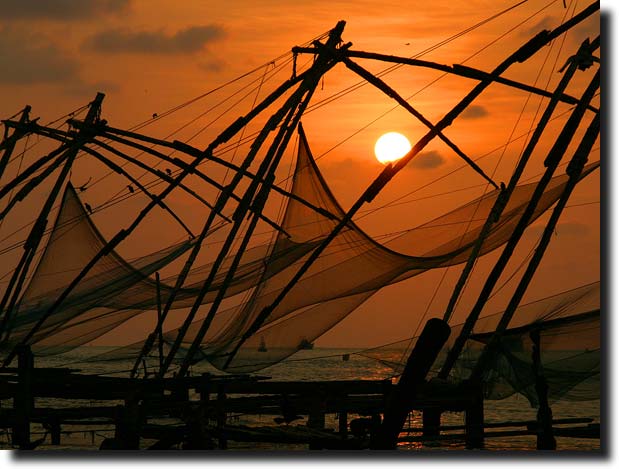Fort Kochi - Kathakali dance - Backwaters - Alleppey - Ferry Ride - Varkala - Kovalam - Fishermen - Trivandrum
|
|
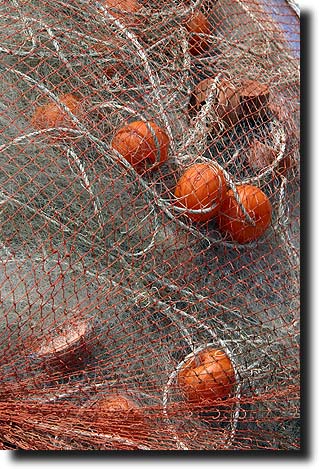 |
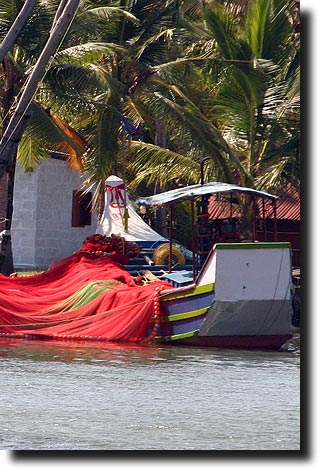 |
|
|
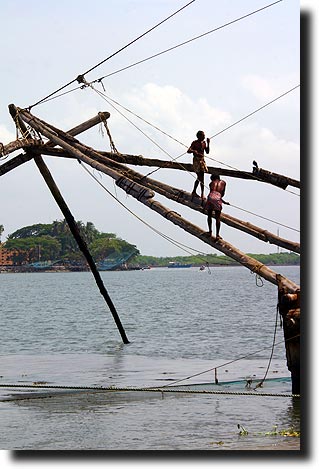 |
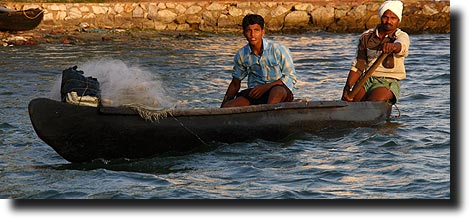
When they are ready to bring in the net, they slap the water with their hand or a big stick (below), hoping to drive the fish into the net for the ride home (below, right). |
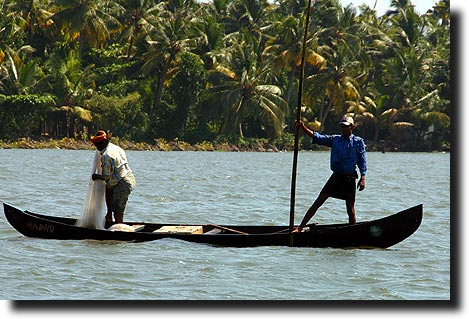 |
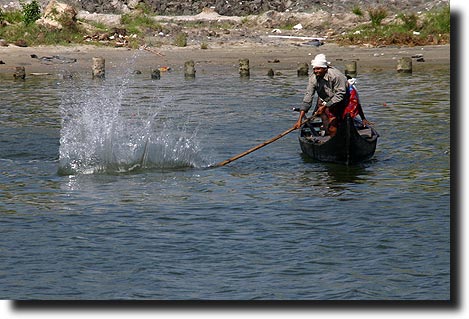 |
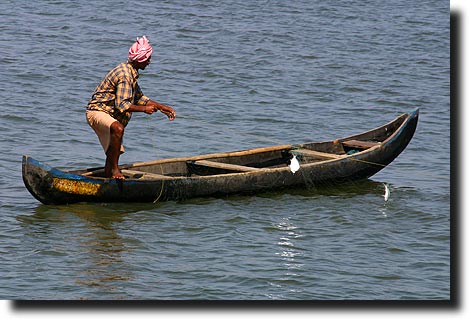 |

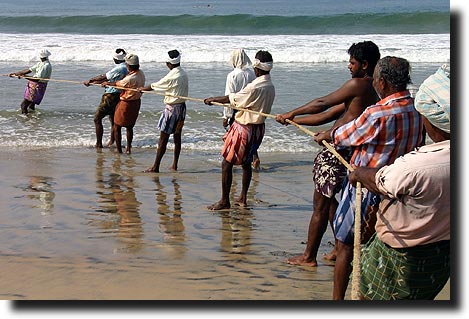
Their nets are spread out (by boat) at either end of the beach, and then the whole crew works on dragging the heavy nets (made heavier by all the fish, hopefully) onto the shore.
|
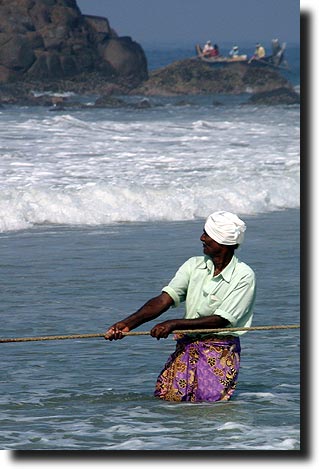
The cooperative work, while others spread out the nets further down the beach, strained their muscles for about two straight hours.
|
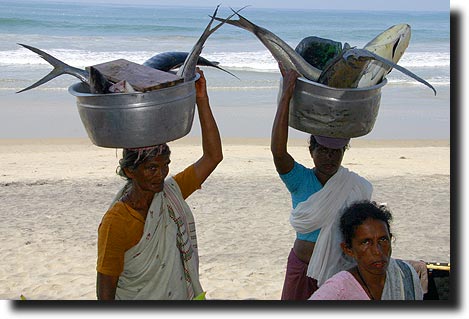 |
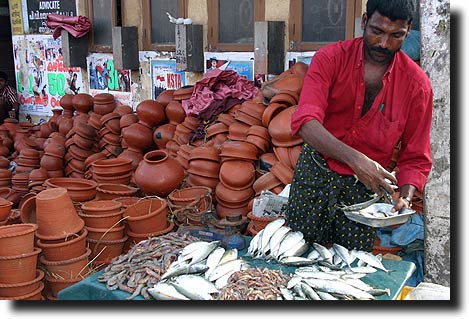 |
|
|
|
||
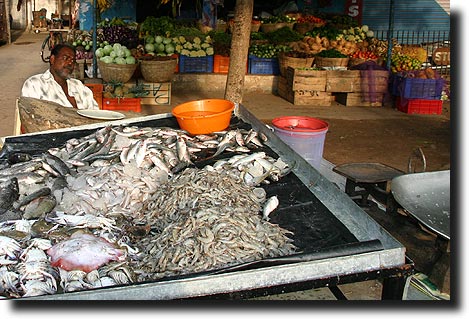 |
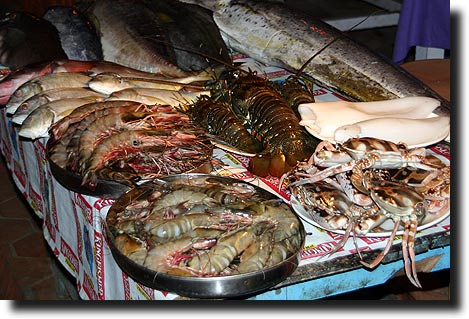 |
|
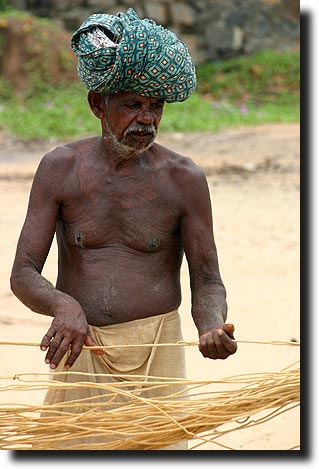 |
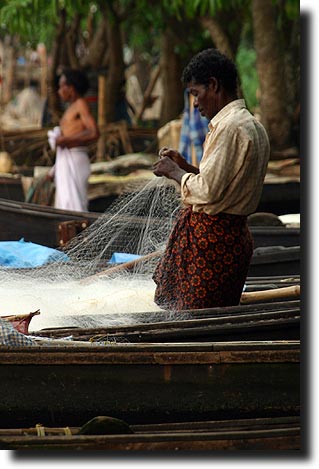 |
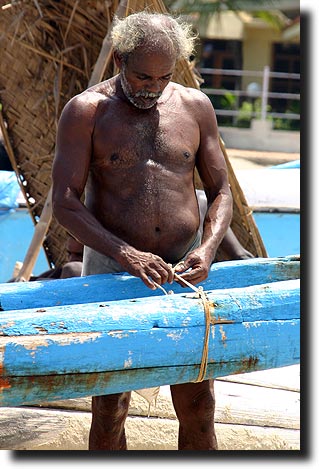 |
